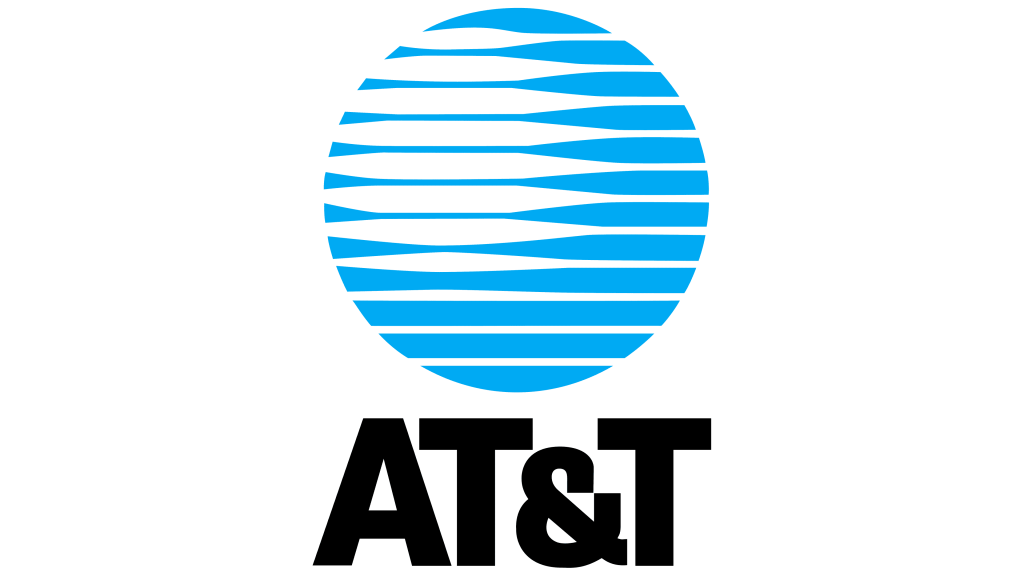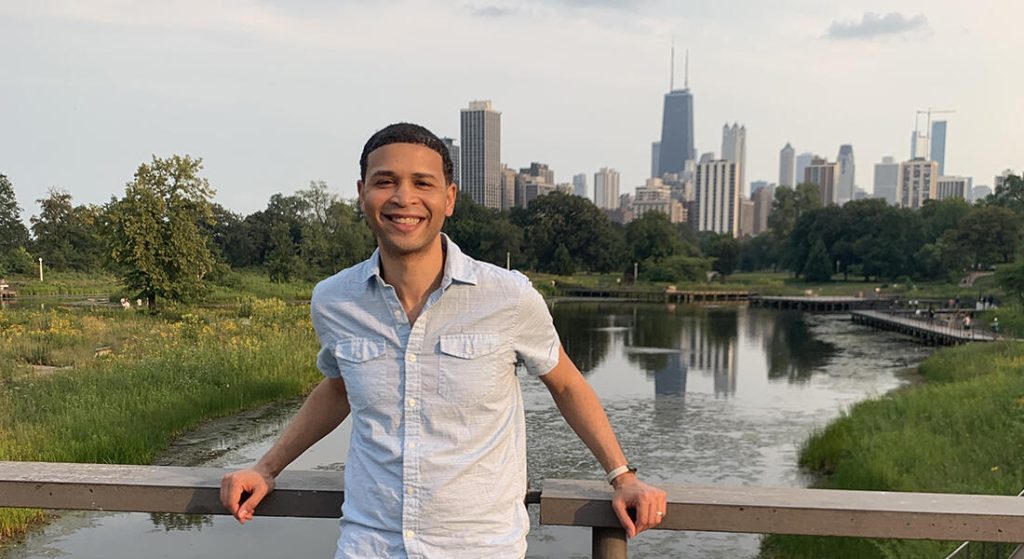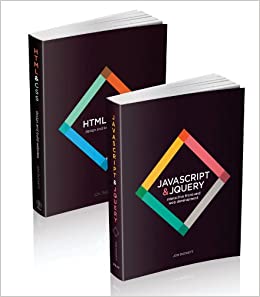What do AT&T and Will Smith have to do with programming?
Where can I find some chill music to code to?
And what the heck is this Imposter Syndrome thing?
Today we’re sitting down with Dion, a web developer for nearly 6 years. Not only can you find plenty of programming tutorials on his YouTube channel… but also lofi hip-hop beats to get you into programming beast mode.
This post contains affiliate links. We may receive compensation if you buy something. Read our disclosure for more details.
1. Tell us about yourself.
Hi I’m Dion D. Lewis! I was born and raised on the southside of Chicago, Illinois and I currently work in the Chicagoland area as a Full-Stack Web Developer for a company that makes websites and web apps for the automotive industry.
Somehow in my spare time I’m able to have fun and run a YouTube channel called Code Pioneers that has some coding tips and music that programmers can listen to while they code.
2. In 2008 you started working as a telecommunications technician at AT&T. Then 8 years later you started working as a web developer. What inspired your transition?
Giving back to the community is really important to me. So I joined an employee resource group at AT&T that was involved in regular volunteer work in Chicago. One of the events we would have every year is a day of coding with high school students.

I signed up to be a volunteer and I had such a great time working with the kids that I started thinking about learning how to code as a career goal.
A few months later the CEO of AT&T, Randall Stephenson, held a meeting that was streamed to the entire company. He explained why he felt that everybody needed to enhance their tech skills by 2020 because of where the tech industry was going with video content.
He announced that AT&T had formed a partnership with Udacity where employees could learn how to code for free. So I immediately signed up.
The irony about all of this is that the skills I gained eventually landed me a job outside of AT&T. So now if anyone asks me why I left AT&T I jokingly say because Randall Stephenson told me to.
3. Tell us about the Chicago tech scene.
The Chicago tech scene is as diverse as the city itself.
Although Full-Stack React/node.js reigns supreme here, there’s a special place for almost any tech stack that a developer wants to work in.
I get emails daily from recruiters looking for developers with Angular, PHP/WordPress, ASP.NET, Java/Spring, Python/Django, and even Ruby on Rails experience.
A nice starting point to get an overview of the Chicago tech scene is the website https://www.builtinchicago.org/.
It lists a variety of tech-related jobs and startups in Chicago and is one of the main ways I keep a pulse on what’s going on in the tech industry out here.
Chicago is a breeding ground for startups and many of them love to take chances on developers whose tech skills may not be exactly what they’re looking for. But may have excellent soft skills that make them extremely valuable to a company.

I was almost hired as a UX Designer at a startup and I don’t even consider myself a designer.
So Chicago is definitely a great place to get your foot in the door if you’re just starting out, or if you just want to try something new.
4. What materials did you use to learn how to become a full-stack web developer?
I initially started learning how to code on Udacity’s platform because of the partnership that AT&T had with them while I was working there. Unfortunately, like most newbies, I entered an infinite loop of tutorials that included YouTube, Treehouse, Codecademy, Udemy, Lynda and Frontend Masters.
I also read various books including John Duckett’s books “HTML and CSS: Design and Build Websites”, “JavaScript and JQuery: Interactive Front-End Web Development”, and “The Pragmatic Programmer” by David Thomas and Andrew Hunt.
I’m pretty sure that I went overboard on the books and tutorials but hindsight is 20/20 and I’ve recently started to appreciate the journey and the destination equally.
5. With your background in technology, what did you find most challenging about learning full-stack development?
My background in technology definitely helped me with concepts such as DNS, HTTP/HTTPS, and server configurations. So I had a good understanding about how the internet works but not how a webpage was rendered.
The most challenging part of learning full-stack development was understanding the dividing lines between each language that runs the web.
In web development we usually learn HTML and CSS first and we’re told that JavaScript makes a webpage interactive. But in my mind HTML and CSS already made a webpage interactive.
Since there are areas where the capabilities of each language can overlap each other, this made learning even more confusing to me.
It was difficult to understand what the limits of CSS were before JavaScript was needed, what the limits of client-side JavaScript were before something like node.js or PHP was needed.
It also took a while for me to wrap my head around why certain issues that originated in the database mimicked issues that I assumed would originate somewhere on the front-end.
6. Tell us about how you helped high school kids learn to code.
It was really cool, apparently I look much younger than I actually am because when I showed up to the University of Chicago I had to assure them that I was an AT&T employee who already graduated high school. And that I was actually there to help teach the class.

High school students usually value the importance of looking good at school so we used the MIT App Inventor to build an Android app called “Outfit Picker.”
Using block coding, the students would be able to load outfits into the app and the app would mix and match their clothes for them to make the perfect outfit to wear each day.
It was hilarious to watch them trying to debug their app when it wasn’t working and pointing out the little mistakes they were making that broke the app.
In the end I think they all had a new appreciation for their mobile devices and I had a new love for programming.
7. What advice do you have for code newbies?
Start freelancing or applying for jobs as soon as possible because I believe the best way to truly learn how to code is to have a job that requires you to code.
This is a paradox because you need to know how to code to get a job but the great thing about this industry is that you don’t have to know everything.
There’s this initial belief that every company will have us take some complicated coding test full of algorithms and riddles during the interview process, but that’s not always the case.
Some hiring managers just have a simple conversation with you or just look at your portfolio and ask a few questions. So don’t be afraid of interviews; it’s all a part of the process for your next career move.
Also, ignore the doubters, the haters, and pretty much anybody that has anything negative to say about you learning how to code.
When I was at AT&T, my co-workers ridiculed me for learning how to code instead of taking more computer networking or hardware related classes. They literally said to me “you’re wasting your time with that stuff” but here I am working as a professional developer today, and I can honestly say that I enjoy what I do every day.
8. You have some cool animated lofi hip-hop music videos on your channel. What inspired you to make these mixes?
The main inspiration behind those animated lofi hip-hop music videos was trying to defeat the final boss of developers everywhere, “Imposter Syndrome.”
The struggle is real as a developer and so is feeling like a total imposter when the perfect code you wrote just broke everything for what seems like no reason at all.
When a storm hit our area in Chicago, I couldn’t record a regular YouTube video so I decided to make a video similar to what I had read about in a book by Trevor Moawad, a mental conditioning coach for the football player Russel Wilson.
In the book “It Takes What It Takes: How to Think Neutrally and Gain Control of Your Life,” Trevor talked about how before games Russel Wilson would watch videos of some of his best football moments with some thematic music playing in the background to get himself mentally prepared for a game.

My plan was to take this idea and make a lofi hip-hop video so that whenever I started getting that imposter-like feeling I could play the video, listen to some chill music, and at least see a confident version of myself writing some code.
One of my favorite videos is “chill beats to quarantine to” on Will Smith’s YouTube channel and I wanted to make something similar to that video but instead of Will Smith writing his rhymes it would be an animated character of me writing some code.
I had originally planned on making just one 30 minute animated music video “Late Night Coding in Chicago” but I kept receiving requests to make more.
I do some DJing on the side as a hobby so since the videos are fun to make and kept my DJ equipment in use during the pandemic, I made more.
I was brand new to YouTube and didn’t even realize how popular lofi hip-hop videos were until Wired magazine reached out to me inquiring about them.
The response has been overwhelmingly positive, I’ve received comments and emails from developers and other professionals from all over the world saying that the videos have been a tremendous help to them as well.
9. Is there anything else you’d like to add?
Thank you for allowing me to share my experience here! The RealToughCandy YouTube channel and website has been a huge inspiration to me for my own personal brand and my career as a developer. I would strongly encourage all developers to build up their personal brand alongside their tech skills.
Companies are more open to remote work now and are less concerned about where developers live so an online presence and personal branding is going to be even more important than ever before.
In the spirit of following my own advice, feel free to connect with me on the following platforms:
https://www.youtube.com/c/codepioneers
https://www.facebook.com/CodePioneers
https://twitter.com/CodePioneers
Enjoy this software developer interview? There’s more where that came from:
- Andrei Neagoie Interview: The ZeroToMastery.io Founder Shares His Web Development Journey
- Web Dev Simplified Interview: Kyle Cook Demystifies JavaScript
- From TVs to Pedal Pubs: Design Engineer Interview with Cindy
- Python on the Farm: Python Developer Interview with Joy
- Born Blind: Meet Taylor the Web Developer [Web Accessibility Interview]

